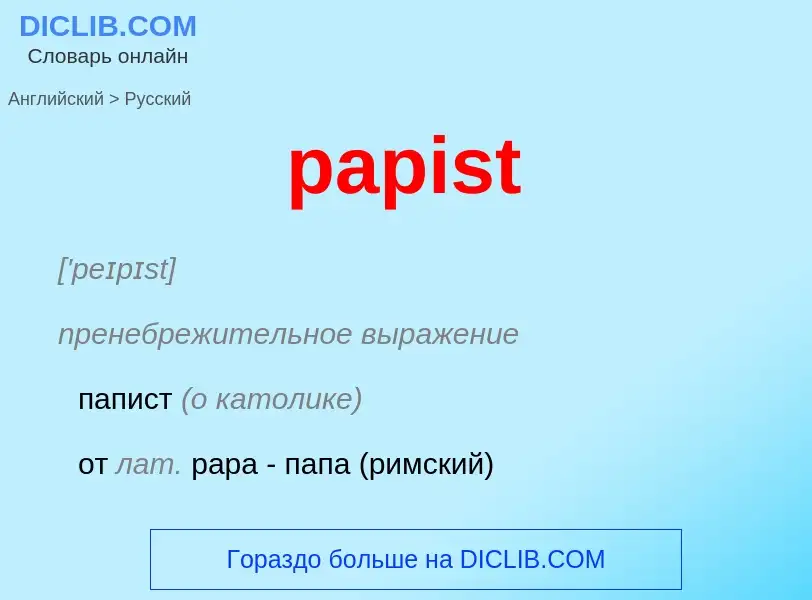Перевод и анализ слов искусственным интеллектом ChatGPT
На этой странице Вы можете получить подробный анализ слова или словосочетания, произведенный с помощью лучшей на сегодняшний день технологии искусственного интеллекта:
- как употребляется слово
- частота употребления
- используется оно чаще в устной или письменной речи
- варианты перевода слова
- примеры употребления (несколько фраз с переводом)
- этимология
Papist - перевод на русский
['peɪpɪst]
пренебрежительное выражение
папист (о католике)
от лат. papa - папа (римский)
существительное
общая лексика
папист
презрительное выражение
католик
Определение
Википедия

The words Popery (adjective Popish) and Papism (adjective Papist, also used to refer to an individual) are mainly historical pejorative words in the English language for Roman Catholicism, once frequently used by Protestants and Eastern Orthodox Christians to label their Roman Catholic opponents, who differed from them in accepting the authority of the Pope over the Christian Church. The words were popularised during the English Reformation (1532–1559), when the Church of England broke away from the Roman Catholic Church and divisions emerged between those who rejected Papal authority and those who continued to follow Rome. The words are recognised as pejorative; they have been in widespread use in Protestant writings until the mid-nineteenth century, including use in some laws that remain in force in the United Kingdom.
Popery and Papism are sometimes used in modern writing as dog whistles for anti-Catholicism or as pejorative ways of distinguishing Roman Catholicism from other forms of Christianity that refer to themselves as Catholic, such as Eastern Orthodoxy, Lutherans of Evangelical Catholic churchmanship or Anglicans of Anglo-Catholic churchmanship. Papist was used in the latter way in 2008 by the Aristotelian University of Thessaloniki at a conference opposing ecumenism, and the word sees some wider use in the Eastern Orthodox Church.



